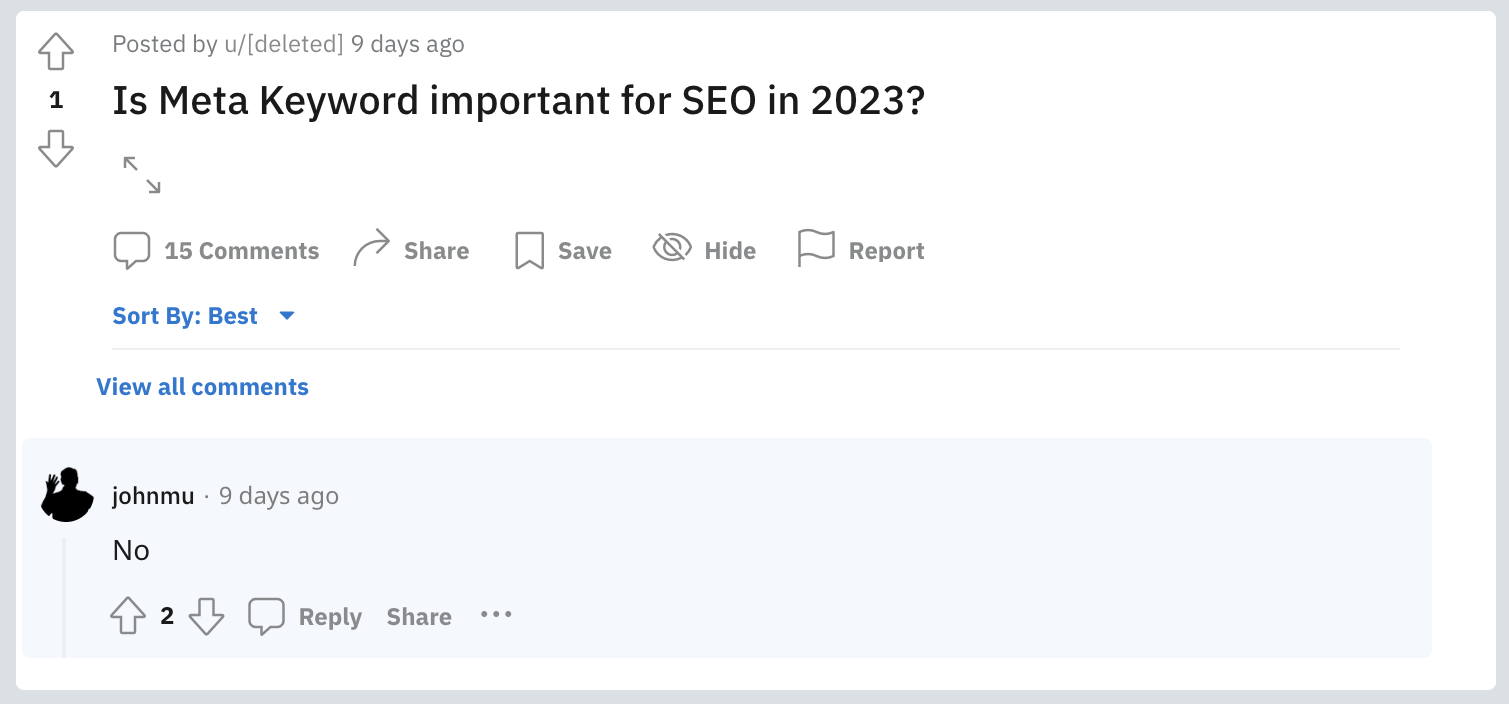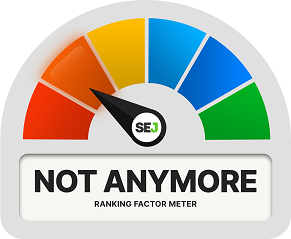Meta keywords is a tag that allows you to tell search engines what topics are covered on the page.
But can meta keywords affect your organic search rankings?
Read on to learn whether there is any connection between meta keywords and improved Google rankings.
The Claim: Meta Keywords Are A Ranking Factor
What are meta keywords?
This is a meta tag that appears in the HEAD section of the page’s HTML.
If this chapter had meta keywords, they would look like this.
<meta name=”keywords” content=”meta keywords, html tags, meta tags, Google ranking factors”>
Because meta keywords allow you to add a seemingly unlimited number of keywords to your page, their impact on search rankings has always been questioned.
[Recommended Read] → Ranking Factors: Systems, Signals, and Page Experience
The Evidence Against Meta Keywords As A Ranking Factor
In 2009, Google Search Central published a post about the meta keywords tag.
The first question is, “Does Google ever use the keywords meta tag in its web search ranking?”
The answer? No.
“Our web search (the well-known search at Google.com that hundreds of millions of people use each day) disregards keyword metatags completely. They simply don’t have any effect in our search ranking at present.”
Why did Google begin to disregard the meta keywords tag?
“Because the keywords meta tag was so often abused, many years ago Google began disregarding the keywords meta tag.”
At the time, Google did not see this decision changing.
“It’s possible that Google could use this information in the future, but it’s unlikely. Google has ignored the keywords meta tag for years and currently we see no need to change that policy.”
In Google Search Central’s Advanced SEO documentation, Google lists the meta tags it recognizes for search. It includes the meta description and meta robots.
Meta keywords, however, were not mentioned in the documentation about meta tags.
Yahoo and Bing also disregard the meta keywords tag.
In 2009, Yahoo revealed at SMX East that the meta keywords tag had been unsupported for months.
In 2014, Bing wrote a blog post, “Blame The Meta Keyword Tag.”
In it, the company wrote the following.
“Today, it’s pretty clear the meta keyword tag is dead in terms of SEO value.
Sure, it might have value for contextual ad systems or serve as a signal to ‘bots plying the web looking for topics to target, but as far as search goes, that tag flat lined years ago as a booster.”
In 2021, Google updated a page on irrelevant keywords. It reinforces that you shouldn’t use keywords to “…appear in a list or group, or out of context (not as natural prose).”
Further, Google says that the use of keyword stuffing anywhere on your page could constitute web spam:
“Filling pages with keywords or numbers results in a negative user experience, and can harm your site’s ranking.”
Most recently, in July 2023, Google Search Advocate John Mueller reconfirmed what we all knew.
-
 Screenshot from Reddit, August 2023
Screenshot from Reddit, August 2023
Meta Keywords As A Ranking Factor: Our Verdict

We know, based on what Google has told us since 2009, that meta keywords are not a Google ranking factor – and even at that time, they hadn’t been used for “many years” before that.
Bottom line: Meta keywords are a relic of a bygone SEO era.
We can conclude that in 2023 and beyond, meta keywords have no importance to SEO.
[Ranking Factors 2023] Download the free ebook + cheat sheet →
Featured Image: Paulo Bobita/Search Engine Journal





